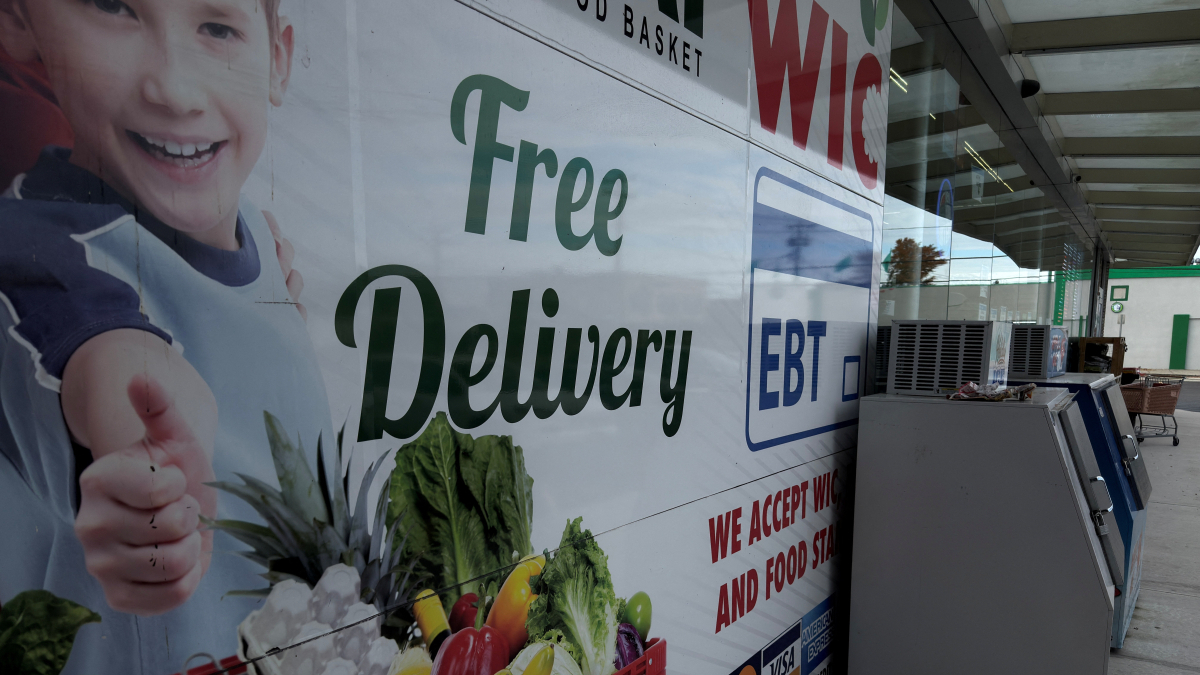'No red lines': Iran claims it has hit U.S. and allied bases after declaring them ‘legitimate target’
A senior Iranian official has warned Israel to “prepare for what is coming”, insisting that Tehran’s response to the latest escalation in the Mi...

The fate of food assistance for 42 million low-income Americans remained uncertain on Monday, as ongoing legal disputes continued to cloud the future of the Supplemental Nutrition Assistance Program (SNAP) even while lawmakers worked to end the record-breaking federal government shutdown.
A mix of court rulings, both favourable and adverse, for Democratic-led states, cities, and nonprofits seeking to restore full SNAP funding has created widespread confusion over the programme’s immediate status.
Meanwhile, the Senate advanced a bill to reopen the government, though any resolution would still need approval from both the House and President Donald Trump, a process that could take several days.
SNAP, commonly known as the food stamp programme, provides monthly benefits to Americans earning below 130% of the federal poverty level. For the current fiscal year, the maximum benefit is $298 for a single-person household and $546 for a two-person household.
On Sunday, the 1st U.S. Circuit Court of Appeals in Boston denied the Trump administration’s request to suspend a lower court ruling from Rhode Island that ordered the U.S. Department of Agriculture (USDA) to redirect $4 billion from other allocations to fully fund SNAP. However, the appeals court’s decision had no immediate effect, as U.S. Supreme Court Justice Ketanji Brown Jackson had already issued a 48-hour temporary stay on that order late Friday.
In a filing to the Supreme Court on Monday, the administration reiterated its demand to halt the Rhode Island judge’s directive unless Congress ends the shutdown.
Trump Administration appeals Lower Court ruling
The suspension of the six-decade-old SNAP program during this shutdown, the first time in history, has triggered emergency responses in several states and led to long lines at food banks.
On Saturday, the U.S. Department of Agriculture (USDA) instructed states to reverse any efforts made to issue full benefits following the Rhode Island court’s ruling, warning of potential financial penalties. But on Monday, U.S. District Judge Indira Talwani in Boston temporarily blocked that USDA order after 25 Democratic-led states and the District of Columbia argued that the agency could not compel them to undo steps taken under lawful court direction. A hearing was scheduled later that day.
Government lawyers maintained that courts cannot force the USDA to search for additional money “in the metaphorical couch cushions” to fund SNAP while the shutdown persists, placing the responsibility squarely on Congress to provide funding.
In a Sunday opinion piece, U.S. Circuit Judge Julie Rikelman, writing for the three-judge panel, acknowledged the administration’s concern that reallocating funds might affect other nutrition programmes but said denying SNAP aid would cause “widespread harm” by leaving tens of millions of Americans without food as winter begins.
The White House and USDA declined to comment on the ongoing dispute.
The administration had initially planned to suspend SNAP entirely in November, citing the shutdown’s impact on funding. Monthly programme costs typically range between $8.5 billion and $9 billion.
However, in a separate lawsuit brought by a coalition of cities, nonprofits, a union, and a food retailer, U.S. District Judge John McConnell ruled that the administration was obligated either to use emergency funds to provide partial benefits after completing administrative steps, or to identify additional resources to fully fund November’s SNAP payments.
Tensions between the U.S. and Iran are escalating, with Washington ordering a significant military build-up in the region and multiple countries evacuating diplomatic staff amid fears of further instability.
The United States has begun "major combat operations" in Iran, President Donald Trump has confirmed, as Israel said it had launched a "pre-emptive" missile strike against Iranian targets. Iran has retaliated with strikes over Israel.
Russian President Vladimir Putin’s special envoy, Kirill Dmitriev, arrived in Geneva and may hold talks with U.S. officials, according to the RIA news agency.
Ankara has rejected media reports claiming it plans to deploy military forces into Iranian territory in the event of a U.S. attack on the Islamic republic.
Two people were killed and around 40 injured when a tram derailed in central Milan on Friday (27 February), a spokesperson for the local fire service said.
A senior Iranian official has warned Israel to “prepare for what is coming”, insisting that Tehran’s response to the latest escalation in the Middle East will be made openly and without limits.
Cuba has released extensive details of a deadly midweek shootout at sea, showing rifles, pistols and nearly 13,000 rounds of ammunition that it says were carried by a group of exiles who attempted to enter the island by speedboat.
Afghanistan’s Taliban rulers said on Friday (27 February) they were ready to negotiate after Pakistan bombed their forces in several Afghan cities, including Kabul and Kandahar, and Islamabad declared the neighbours were now in "open war".
Tensions between the U.S. and Iran are escalating, with Washington ordering a significant military build-up in the region and multiple countries evacuating diplomatic staff amid fears of further instability.
Two people were killed and around 40 injured when a tram derailed in central Milan on Friday (27 February), a spokesperson for the local fire service said.
You can download the AnewZ application from Play Store and the App Store.

What is your opinion on this topic?
Leave the first comment